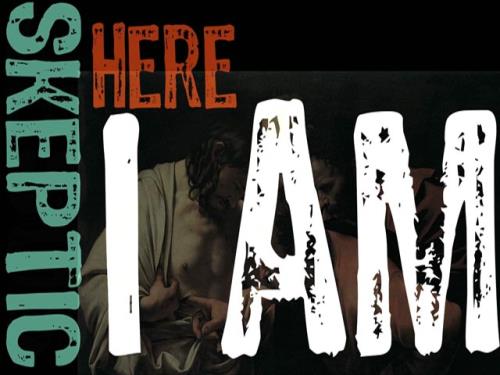-
Emmaus - The Road To Realisation Lk 24:1-35
Contributed by Damon S Adams on Nov 28, 2017 (message contributor)
Summary: This messages explores the lessons to be learnt from the account of Jesus'meeting with the two disciples on the road to Emmaus. This was a journey from disappointment to joy. Here is an encounter with the risen Jesus, an encounter available to all.
Emmaus – The Road to Realisation Lk 24:1-35
Introduction
This account is one of the most beautiful accounts we have in the Bible. In order to appreciate it we need to live into it! Remember Jesus was just crucified – the Sabbath is over. Two disciples are on the road returning home. Little did they realise that that are part of the greatest event in the History of all creation. The Crucifixion and Resurrection contained the darkest and brightest points in History. Nothing is accidental or incidental. Luke brings this story with the perspective of above – God’s view. If we were there it would have been completely different. We get annoyed and frustrated with many of the heroes in the Bible – they seem to rush into foolish and faithless actions – we want to cry out . . . STOP!!! and think to ourselves, ‘How could they?”
We need this view because our lives are lived in the experience of our humanity. In fact we would have been just like we observe. It is God’s gracious way of teaching us through the lives of others.
From the account of the journey to Emmaus we observe:
1. Disappointment & Despair Lk 24:13-24
2. Discourse & Disclosure Lk 24:25-27
3. Discovery & Determination Lk 24:28-35
1. Disappointment & Despair Lk 24:13-24
Here we have two disciples – they are not apostles and yet these most unlikely pair experience one of the greatest journeys ever. But this pair was down in the mouth as they were travelling back home to a small village known as Emmaus. We are not aware of where this place actually is. It wasn’t great people and a grand place that this event takes place – it’s on a road to a small unknown village with two obscure men. And yet the resurrected Saviour takes the time to walk and talk with them. What we think is insignificant is significant to God. These men were talking about all the events – they were trying to come to terms with it all.
Little do these disciples realise they are about to have the greatest company – the King of Kings and Lord of Lords. Yet they are unaware of who he is. Jesus takes the initiative and joins them. He promptly asks them what they are talking about.
v.17 ‘They stood downcast’. The two were both disappointed and despairing – they had invested time, energy and part of their lives to following Jesus. They tell the whole story – they actually call Jesus ‘a stranger’. Here is the irony – they tell Jesus all about Himself. In the process they show that their high hopes have been dashed, v21.
Here is a lesson for each of us – they had created their own hope which is not founded on Jesus’ teaching. The rumour of His disappearing body only added despair to disappointment. We too often create expectations which don’t come to realisation. We have a tendency to place our hope in anything and everything but where it should really be placed. Often we create false expectations and even give them the stamp of being from God. We need to careful of constructing our own hope built on foundations of our making.
We cannot undervalue or underestimate ‘Hope’ – it is one of the three greatest things along with Faith and Love (1Cor 13). It is the life blood of the believer and is the preservative to despair, despondency and depression.
2. Discourse & Disclosure Lk 24:25-27
Jesus takes the opportunity to set the two disciples straight. He gives them a Bible study like no other – wouldn’t you have loved to of been there! They needed to realise what the Bible really taught. And so, Jesus opened up all of the Bible to them. He showed how the Messiah was to suffer and then enter into His glory. It was a disclosure of both His person and work of Jesus.
The Bible ultimately is all about Jesus. The Old Testament contains not only the prophecies relating to Him, He holds everything together. The Temple, the Law, the priesthood, the sacrifices, the Covenant, the deliverance from Egypt, the Promised Land, the Captivity – it all has to do with Jesus. The expression, ‘Moses and the Prophets’ is a way of saying – ‘all’ of the Tanakh! But to make doubly sure in v.44 it says ‘the Law of Moses, the Prophets and the Psalms’. This is the most formal and technical way of declaring all the scriptures. According to the Jews they divide the OT up into three sections – the Law, the Prophets and the Psalms (which includes Wisdom literature and the Histories) - and in that order.
Reading the Bible is essential for our spiritual well-being. In a recent survey done in the USA, reading the Bible at least 4 times a week has been shown to be the number ONE basis for promoting spiritual growth and preventing back-sliding.

 Sermon Central
Sermon Central



